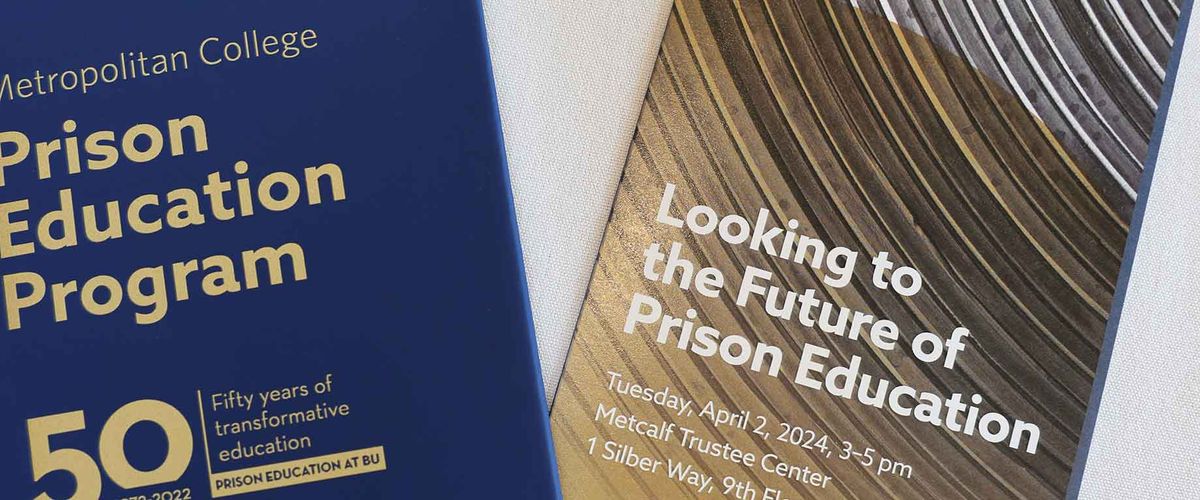New Prison Education Director Lays Out Vision for Program That ‘Transforms Punishment into Possibility’
 Visiting Assistant Professor of Criminal Justice Abigail Ballou, Boston University Metropolitan College’s recently appointed Prison Education Program director, believes strongly in the mission of her new assignment. “The research is clear,” she says. “Prison education programs like BU PEP greatly benefit both students and their communities.”
Visiting Assistant Professor of Criminal Justice Abigail Ballou, Boston University Metropolitan College’s recently appointed Prison Education Program director, believes strongly in the mission of her new assignment. “The research is clear,” she says. “Prison education programs like BU PEP greatly benefit both students and their communities.”
She would know. After all, Dr. Ballou has conducted significant research into the value of educating the incarcerated, and the ways an education can ease their reentry to society upon release and improve job outcomes. She even recently won grants from the National Institute of Justice and Arnold Ventures to explore the relationship between criminal records, education, and access to middle-skill jobs.
Now with BU PEP, she’s helping incarcerated students develop skills that can help redefine themselves, as opposed to being defined by past mistakes. “Education within prisons transforms punishment into possibility,” she attests.
Indeed, 2025 was an exceptional year for education among the incarcerated, as the Massachusetts Department of Correction released a report that said that the 2024–25 school year saw 1,367 individuals achieve educational milestones while imprisoned.
For those studying through BU’s program, which has now been running for over 50 years, Dr. Ballou hopes that students get an educational experience that parallels those of a traditional BU student. “I want to ensure that the curriculum we offer behind bars provides students with the same rigorous intellectual experience, sense of community support, and opportunity for growth as any world-class college classroom,” she says. “Some key ways I intend to improve our student experience is by expanding our offerings to include a wider variety of degree pathways and creating more robust reentry and career services.”
Dr. Ballou’s teaching experience in prison classrooms left her with the strong impression that many she encountered, prior to their incarceration, faced uphill climbs for educational access and significant structural, systemic barriers. “These experiences have solidified my belief that addressing inequality is crucial to our efforts to improve community safety,” Dr. Ballou says.
She disputes the notion that learning through programs like BU PEP is a ‘privilege,’ saying, “I believe that education is a human right, and that when we invest in the intellectual and personal growth of all people—including those who are incarcerated—we strengthen our communities and create a more just, inclusive society.”
As director of BU MET’s Prison Education Program, Dr. Ballou aims to expand credit-bearing programs, invest in reentry services, and ensure the transferability of credits learned through the program to schools outside. She hopes to see policy changes that support technology initiatives. But most of all, she plans to do everything she can to be of aid to the community of motivated learners that have made such a strong impression on her.
“The incarcerated students I’ve taught have approached their studies with deep intellectual curiosity, resilience, and a strong commitment to self-growth,” Dr. Ballou says. “They have been some of the most impressive individuals I have ever taught.”
For more on BU’s storied Prison Education Program, watch the video below.
